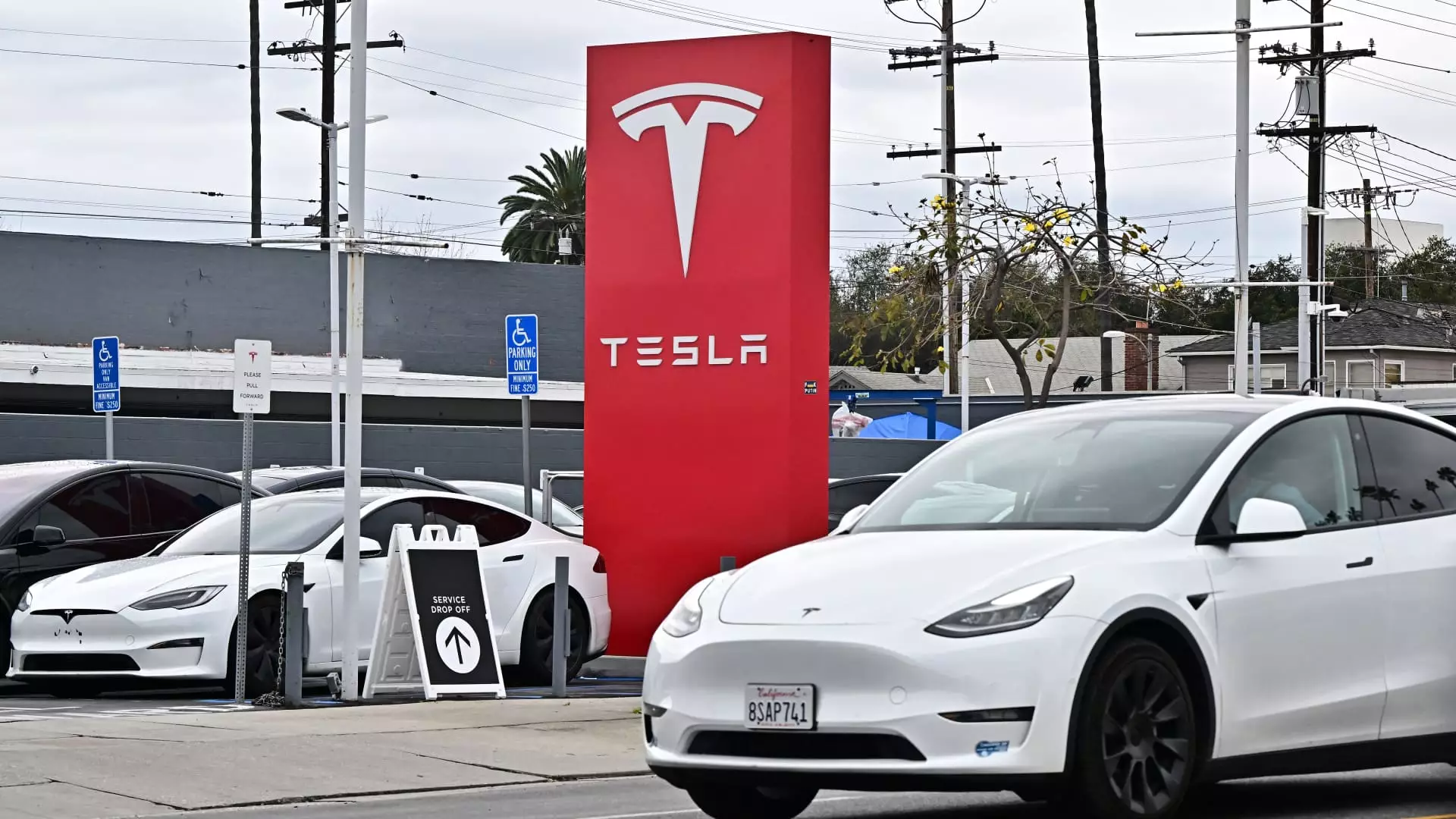As the dust settles on Elon Musk’s second month in Washington, the electric vehicle (EV) giant Tesla faces an unsettling reality. Once hailed as a pioneer reshaping the automotive landscape, the company’s future now appears precarious. An analysis by Edmunds confirms a worrying trend: Tesla owners are increasingly trading in their electric vehicles, marking the highest rate ever recorded for trade-ins to other automotive brands. This shift may not just signify changing consumer preferences; it highlights a broader discontent with Musk’s stewardship in both corporate and political realms.
Musk’s political ascent has come with aggressive cost-cutting measures and audacious attempts to rewire government efficiency. However, these ambitions have been met with substantial legal challenges, raising questions not only about his governance but also about the ethical grounds on which he operates. His purchase of $290 million in support of Donald Trump’s return to power now looms large over his leadership at the Department of Government Efficiency (DOGE), potentially alienating an array of stakeholders who once championed Tesla’s revolutionary mission.
Stock Performance and Market Reaction
Tesla’s stock performance is painting a grim picture. After an initial surge following Trump’s victory, investors are attempting to exit en masse, diminishing the stock’s value by an alarming 42% this year alone. This downward spiral isn’t merely a numerical exercise; it signals a loss of confidence among investors and consumers alike. The faithful Tesla legion is reportedly simulating an exodus from the brand, signaling possibly irreparable damage to Musk’s narrative of superiority in the EV market.
Discontent extends beyond mere stock performance; numerous demonstrations have erupted against Tesla facilities. Arson, vandalism, and other criminal acts targeting Tesla properties highlight a growing societal rift. As the company’s reputation clings to Musk’s controversial persona, the brand’s image becomes increasingly tarnished, drawing attention away from its innovative ethos and shifting it to its leadership’s erratic behaviors.
Competition Breeds Innovation
Karl Marx once said, “All that is solid melts into air,” and this seems prophetic in relation to Tesla’s market position. The company, once thought untouchable, faces rising competition from legacy automakers ramping up their EV offerings. A report from S&P Global Mobility indicates that Tesla’s sales have plummeted by 11% year-over-year in the U.S., while rivals like Ford, Chevrolet, and Volkswagen are seizing market share with revamped electric offerings. In a free market economy, this competition signifies a healthy adjustment; however, for a once-dominant player like Tesla, this represents an existential crisis.
Jessica Caldwell, head of insights at Edmunds, astutely remarks that waning brand loyalty may inch Tesla into a corner from which it finds it challenging to escape. The traditional giants of the automobile industry, now caught up in the electric revolution, could be poised to capitalize on Tesla’s faltering momentum. In essence, the narrative surrounding EVs is shifting; those who prioritize innovation and stability over controversial leadership may win the hearts—and wallets—of disillusioned Tesla owners.
Brand Value Erosion
One of the most alarming statistics reveals that Tesla’s brand value has diminished by a staggering 26%, or roughly $15 billion, in 2024. The erosion of brand strength, particularly in tech-dominated sectors, serves as a dire warning sign. The consumer’s trust—central to any lasting brand—appears to be on a decline matched only by investor confidence. In August 2024, it was reported that a mere 2% of car shoppers were unaware of Musk; unfortunately, awareness alone does not translate into consumer loyalty.
Furthermore, the data presented by Edmunds does not factor in those Tesla owners who choose to swap one Tesla for another, making it apparent that the loyalty factor could be less pronounced than previously thought. The once-idealistic image of Tesla as the leading force in the EV revolution is increasingly muddled by controversy and leadership challenges, and this mirrors a larger question about what defines a brand in today’s rapidly changing consumer landscape.
The trajectory under Musk’s leadership appears set on a difficult course. The reckoning will not come easy, and while it is early yet to predict Tesla’s ultimate fate, the signs are clear: it is no longer a forgone conclusion that electric vehicles equate with Tesla. The rising competition holds significant potential to shift the balance of power in the automotive world—leaving many wondering just how far the mighty have fallen.

